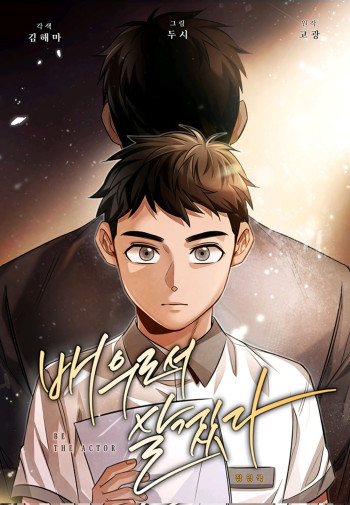
Under the Tulip Tree
by Michelle Shocklee
Sixteen-year-old Lorena Leland’s dreams of a rich and fulfilling life as a writer are dashed when the stock market crashes in 1929. Seven years into the Great Depression, Rena’s banker father has retreated into the bottle, her sister is married to a lazy charlatan and gambler, and Rena is an unemployed newspaper reporter. Eager for any writing job, Rena accepts a position interviewing former slaves for the Federal Writers’ Project. There, she meets Frankie Washington, a 101-year-old woman whose honest yet tragic past captivates Rena.
As Frankie recounts her life as a slave, Rena is horrified to learn of all the older woman has endured—especially because Rena’s ancestors owned slaves. While Frankie’s story challenges Rena’s preconceptions about slavery, it also connects the two women whose lives are otherwise separated by age, race, and circumstances. But will this bond of respect, admiration, and friendship be broken by a revelation neither woman sees coming?
.
Read
Under the Tulip Tree on http://kissnovel.net
Martial Peak Reviews
Michelle Shocklee’s Under the Tulip Tree is a poignant exploration of the human spirit, resilience, and the complex tapestry of American history. Set against the backdrop of the Great Depression, the novel intricately weaves the lives of two women from vastly different worlds, creating a narrative that is both heart-wrenching and enlightening.
The story begins with sixteen-year-old Lorena Leland, affectionately known as Rena, whose aspirations of becoming a writer are thwarted by the economic collapse of 1929. Shocklee paints a vivid picture of the era, capturing the despair and hopelessness that gripped many American families. Rena’s family is no exception; her father, once a successful banker, succumbs to alcoholism, and her sister is trapped in a marriage with a man of questionable character. The author’s portrayal of the Leland family’s struggles is both authentic and relatable, grounding the reader in the harsh realities of the time.
Rena’s journey takes a pivotal turn when she accepts a position with the Federal Writers’ Project, tasked with interviewing former slaves. It is here that she meets Frankie Washington, a 101-year-old woman whose life story becomes the heart of the novel. Frankie’s narrative is a powerful testament to the enduring strength of the human spirit. Shocklee does not shy away from the brutal realities of slavery, and through Frankie’s voice, she brings to light the horrors and injustices endured by countless individuals. Frankie’s character is richly developed, her wisdom and resilience shining through every page.
The relationship between Rena and Frankie is the novel’s emotional core. Despite the vast differences in their backgrounds—Rena, a young white woman from a privileged family, and Frankie, an elderly African American woman who survived the atrocities of slavery—their bond is one of mutual respect and admiration. Shocklee masterfully develops this relationship, allowing it to evolve naturally as Rena learns more about Frankie’s past. The author’s ability to depict the nuances of their friendship is commendable, as it challenges the reader to reflect on themes of empathy, understanding, and reconciliation.
One of the most compelling aspects of Under the Tulip Tree is its exploration of the theme of historical accountability. Rena’s discovery that her ancestors were slave owners forces her to confront her own prejudices and assumptions. This revelation serves as a catalyst for her personal growth, prompting her to question the narratives she has been taught and to seek a deeper understanding of the past. Shocklee handles this theme with sensitivity and nuance, encouraging readers to consider their own connections to history and the importance of acknowledging and learning from it.
The novel also delves into the theme of storytelling as a means of preservation and healing. Through her work with the Federal Writers’ Project, Rena comes to understand the power of stories to bridge divides and foster empathy. Frankie’s willingness to share her story is an act of courage, and Rena’s role as a listener and recorder highlights the importance of bearing witness to the experiences of others. This theme resonates deeply in today’s world, where the sharing of personal narratives continues to be a vital tool for social change.
Shocklee’s writing is both lyrical and evocative, capturing the essence of the time period while also imbuing the narrative with a timeless quality. Her attention to detail and ability to create vivid imagery transport the reader to the heart of the story, making the historical setting come alive. The pacing of the novel is well-balanced, with moments of tension and introspection interspersed with scenes of quiet reflection.
In comparison to other historical novels that tackle similar themes, such as Sue Monk Kidd’s The Invention of Wings or Lisa Wingate’s Before We Were Yours, Under the Tulip Tree stands out for its focus on the intergenerational and interracial friendship between its protagonists. While Kidd and Wingate also explore themes of resilience and historical injustice, Shocklee’s novel offers a unique perspective by centering the narrative on the transformative power of personal connections across societal divides.
Overall, Under the Tulip Tree is a beautifully crafted novel that offers a profound exploration of history, identity, and the enduring bonds of friendship. Michelle Shocklee has created a story that is both a tribute to the resilience of those who came before us and a call to action for future generations to learn from the past. This novel is a must-read for anyone interested in historical fiction that challenges and inspires, leaving a lasting impact on the reader long after the final page is turned.




![When a Villain Meets a Villainess [StanRofanScans]](/upload/pic/manga/when-a-villain-meets-a-villainess--stanrofanscans-.jpg)



















Reviews 0
Post a Reviews: